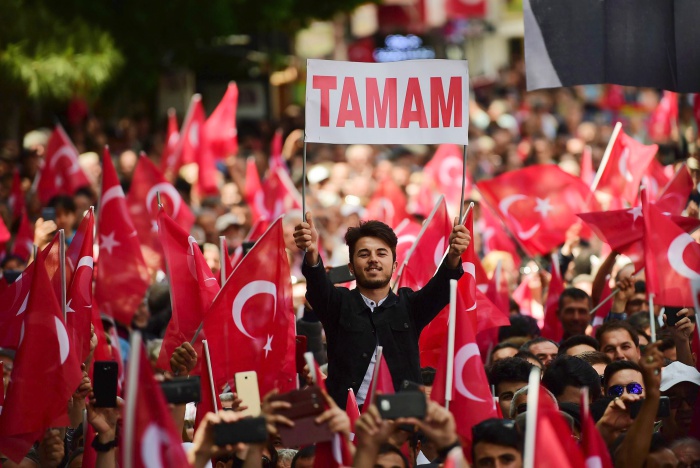As Turkey heads to crucial presidential and parliamentary elections on June 24, it has become clear that opposition party candidates’ campaigns lack any foreign policy strategies and seem to be underestimating Turkey’s importance to Europe, the US and Russia.
Although likely to be president if the incumbent, Recep Tayyip Erdoğan, loses, Muharrem İnce, the Republican People’s Party’s (CHP) nominee, only offered an “effective and stable” foreign policy during a May 12 rally in Afyon. In a TV appearance four days later he simply criticized Erdoğan’s aggressive tone on international issues. He will unveil an election manifesto on May 19, hopefully with an extensive plan on foreign policy.
The İYİ (Good) Party’s presidential candidate, Meral Akşener, who according to some polls may outperform İnce, during the opening speech of her party’s election campaign on May 14 only promised a new line on foreign policy by prioritizing terrorism.
However, the country in recent years has been involved in many important international developments in the region. Besides being a NATO member, Turkey has also formed alliances with Russia and Iran over the Syrian civil war. Russia’s effect on Turkish politics should not be underestimated since “[President Vladimir] Putin has talked with Erdoğan twice as many times as with anyone else” in his last six years in the Kremlin, in addition to military agreements such as the S-400 air defense system purchase between the two countries.
On the other hand, institutions involved in exerting Turkey’s soft power, such as the Turkish Cooperation and Coordination Agency (TİKA), have operations in the Balkans and African countries, mostly helping to create an image of Erdoğan as a world leader. In addition to official institutions, Erdoğan uses economic investment as a tool in international relations, by which in many cases he has been able to force some countries to close Gülen schools and extradite Gülen-linked people. The ruling Justice and Development Party (AKP) has proxies in other countries like Bulgaria’s Democrats for Responsibility, Freedom and Tolerance (DOST), the Netherlands’ DENK and Germany’s Union of German Democrats (ADD).
The Turkish opposition believes economic problems are the major concerns of public; however, in a financially interdependent world they seem unprepared to manage it. On the other hand, this week President Erdoğan visited the United Kingdom to meet with important fund managers as well as UK Prime Minister Theresa May. It was part of a greater plan to save the Turkish economy, which desperately needs foreign investment in order to survive.
Turkey is a huge economic partner for European countries. No one in Europe dares jeopardize financial ties with Erdoğan, despite the fact that they are seriously concerned about human rights abuses and diminishing democratic rule.
Of course the EU-Turkey migration deal plays a significant role in European leaders’ hesitation to challenge Erdoğan, who has more leverage against Westerners than they do against him. He invented “hostage diplomacy” by using terror charges against foreign journalists and political activists in order to sell his demands.
This very strategy also seems effective on the US. In July 2017, former US ambassador to Turkey Eric Edelman and Merve Tahiroğlu, a research associate at the Foundation for Defense of Democracies, wrote in an op-ed for The Washington Post that “Rumors are swirling in Washington about a potential prisoner swap with Turkey. The Turks want the United States to release a Turkish-Iranian millionaire awaiting trial in Manhattan, in return for which they might free a North Carolina pastor being held in a prison in Izmir. Both men are accused of threatening national security. Yet a trade would be a grave mistake, one that would help Turkish President Recep Tayyip Erdogan to export his contempt for the rule of law to the United States.”
Recently, Nevşin Mengü, a critical journalist from Turkey, visited Brussels to speak on freedom of speech in the European Parliament. After the event, she wrote a column for the Birgün daily arguing that nobody in Europe is actually against Erdoğan. She also quoted a fund manager from the World Bank who said: “I have been managing funds in Turkey for more than 30 years. Recep Tayyip Erdoğan suits well with our agenda. One-man rules are easy to work with. Another government would be a risk from our perspective.”
In this realm, opposition candidates need to take foreign policy issues seriously and show the world that Turkey is bigger than Erdoğan.
